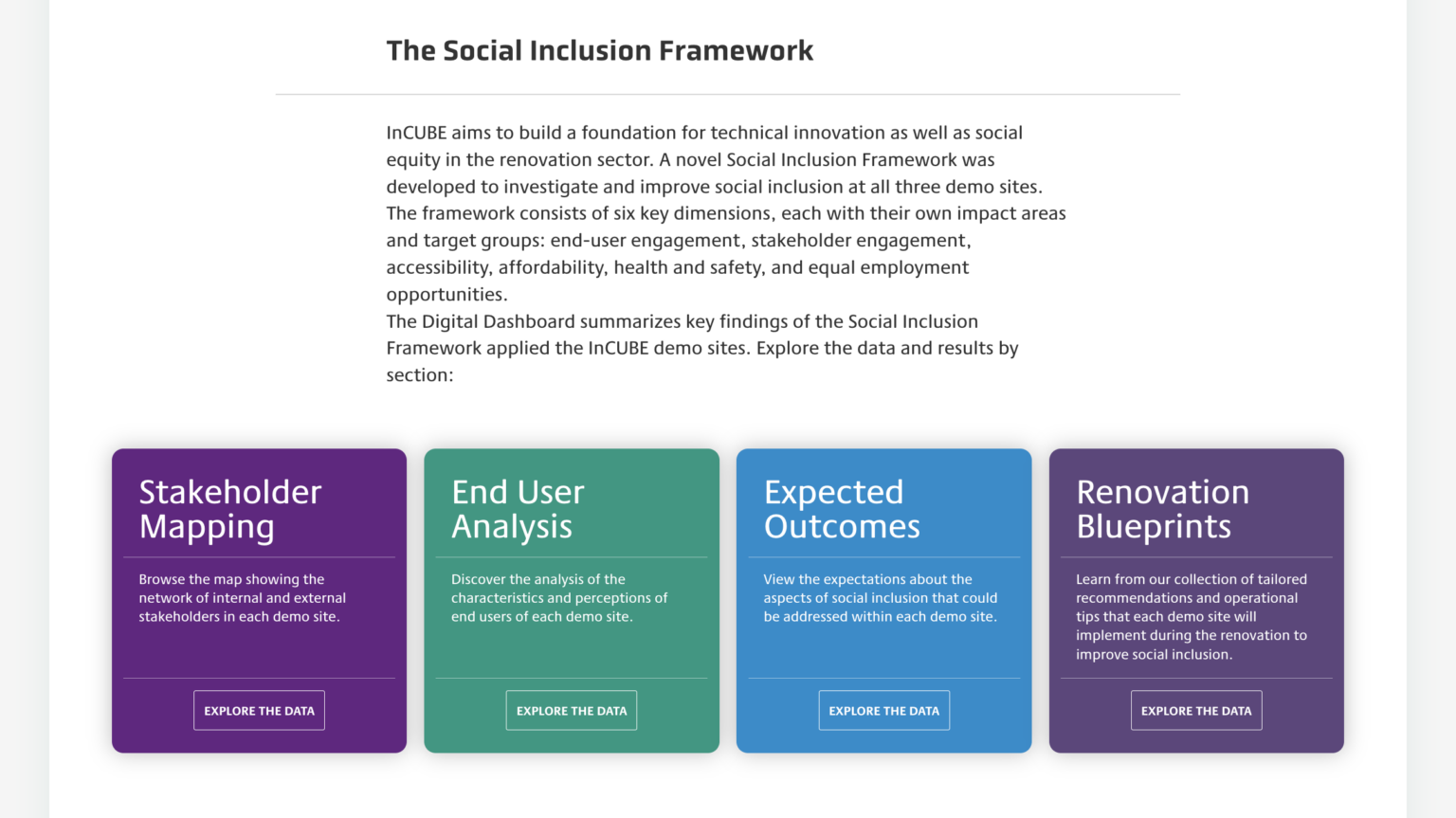
The InCUBE Digital Dashboard is a pioneering platform that places social inclusion, gender mainstreaming, and workforce upskilling at the heart of sustainable building renovation.
Developed as part of the InCUBE project, this interactive tool provides stakeholders with access to essential data, research, and training materials to foster equitable and energy-efficient renovation practices.
By addressing the social dimensions of urban transformation, the InCUBE Dashboard ensures that renovation projects are not only technically sound but also socially responsible. From policymakers and industry professionals to local communities, this platform equips users with the insights needed to create a more inclusive and skilled workforce while improving living conditions for all.
The dashboard is designed to address the key aspects of building rehabilitation, ensuring that sustainability is achieved not just in terms of energy efficiency, but also through social inclusion and user engagement. A major component of this is the Social Inclusion Framework, which helps stakeholders incorporate community needs and social considerations into their projects. This is explored through 4 main areas of the dashboard: stakeholder mapping, end user analysis, expected outcomes, and renovation blueprints.
Successful renovations require collaboration across multiple sectors. The Stakeholder Mapping tool offers a comprehensive view of the key players involved in the rehabilitation process, from government entities and urban planners to contractors and energy suppliers. Understanding these relationships allows for better coordination and alignment of goals, ultimately leading to more effective and sustainable outcomes.
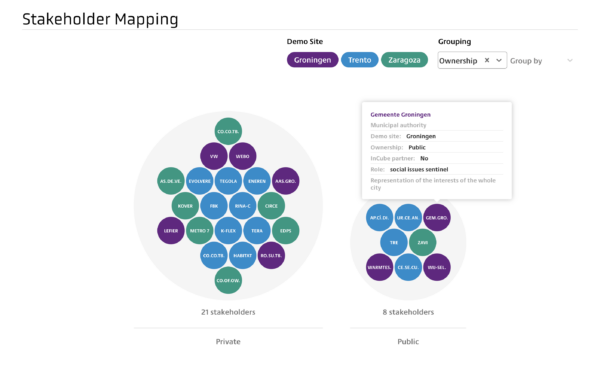
To ensure that renovation projects are aligned with the needs of the community, the End User Analysis section provides demographic insights into the residents of the buildings undergoing rehabilitation across Zaragoza and Trento demo sites. This includes data on age, household composition, and socio-economic background. Additionally, it explores residents’ knowledge of and attitudes toward energy efficiency, providing valuable context for designing awareness campaigns and engagement strategies. Understanding these factors allows stakeholders to tailor interventions that resonate with the community and drive meaningful behavioral change.
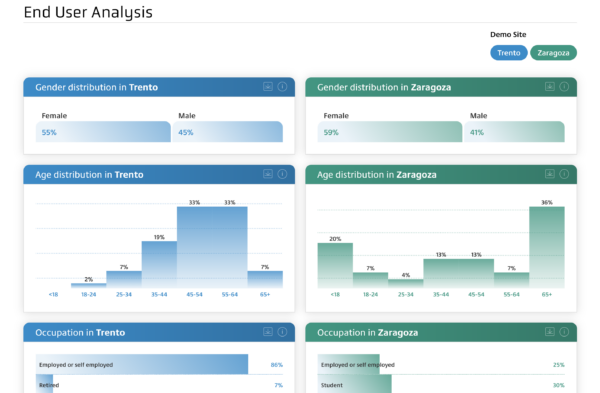
One of the most insightful elements of the dashboard is the Expected Outcomes section, which presents results from key stakeholders regarding their expectations for the renovation process. This data captures perspectives on factors such as affordability, accessibility, awareness of energy efficiency, community engagement, disruption potential during renovation, and safety for both residents and construction workers. By integrating these expectations into project planning, stakeholders can proactively address concerns and improve overall satisfaction with the renovation process.
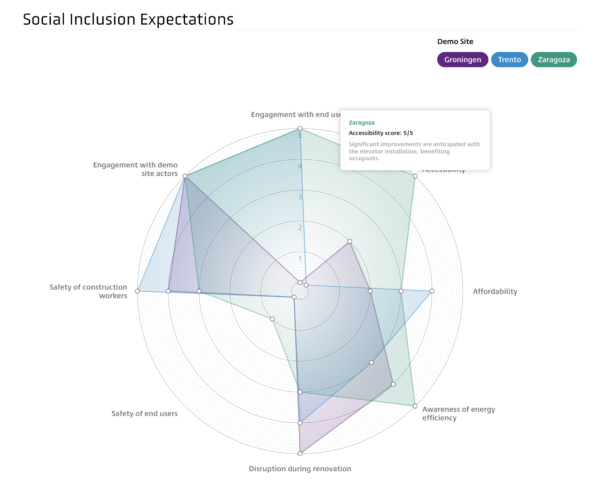
The Renovation Blueprint provides actionable guidelines for integrating social inclusion into renovation processes. It outlines a set of recommendations and operational tips that each InCUBE demo site will implement throughout its renovation process. The blueprint focuses on six key dimensions of the social inclusion framework: end-user engagement, stakeholder engagement, accessibility, affordability, health and safety, and equal employment opportunities. These operational tips are tailored to align with the specific social expectations and scope identified at each demo site.
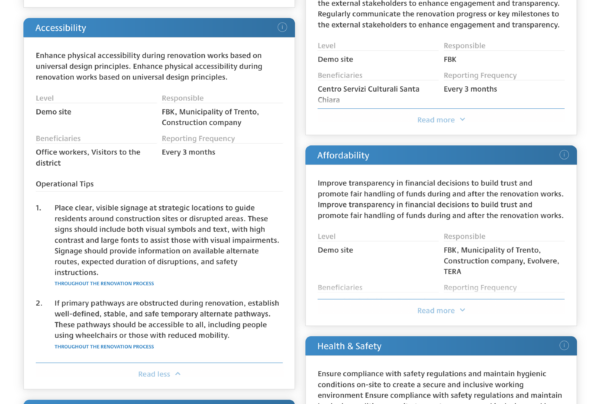
Knowledge-sharing is at the heart of long-term sustainability. The Training Materials Archive provides a repository of educational content, including manuals, webinars, and e-learning modules. These resources equip industry professionals, students, and stakeholders with the latest insights into building rehabilitation, ensuring continuous learning and development.
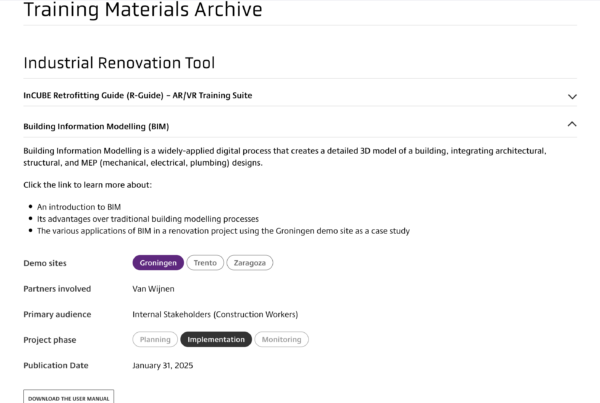
The launch of the InCUBE Dashboard marks a significant step forward in making sustainable renovation more inclusive and actionable. By integrating technical expertise with social considerations, it provides a dynamic and evolving resource for transforming Europe’s building stock.
Whether you are an architect, policymaker, contractor, or researcher, the dashboard is designed to support your journey towards more sustainable and resilient buildings. Explore the platform today and discover how it can help shape the future of energy-efficient renovation.
Visit the InCUBE Dashboard here: https://dashboard.incubeproject.eu/
The InCUBE Dashboard was curated by InCUBE partner LAMA, with the support of the data design studio Sheldon Studio.